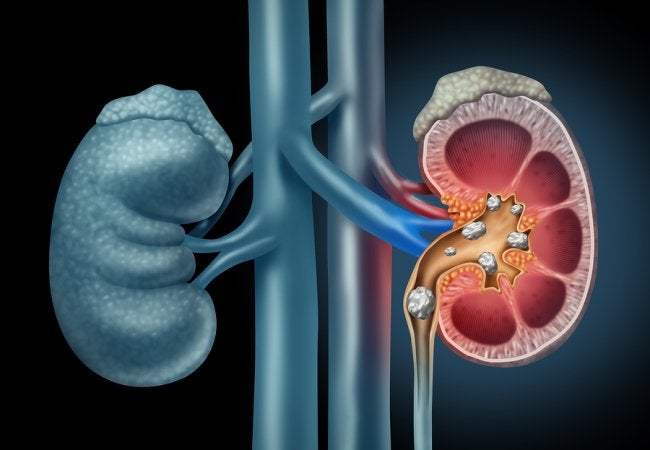-
The Circumcision Decision: Factors for New Parents to Consider

Circumcision is considered by many parents to be a routine procedure for newborn boys, even though it’s usually not medically necessary. For some parents, the choice to circumcise or not is clear, as it’s dictated by religious beliefs. Other parents may wish to speak with a urologist about this decision.
Penile Conditions
Circumcision prevents some medical conditions of the penis, including phimosis. Phimosis is the inability to retract the foreskin. However, it cannot be diagnosed until the boy has reached his first birthday, as most boys are born with the inability to retract the foreskin. Paraphimosis is another condition that is treatable or preventable with circumcision. It is the inability to return the retracted foreskin to the usual position. Untreated paraphimosis can cause blood accumulation, swelling, and severe pain. Although circumcision eliminates the risk of certain problems of the foreskin, it may increase the risk of other health issues. Meatitis is the inflammation of the opening in the penis, and it’s more common among circumcised boys.
Personal Hygiene
Religious and cultural preferences aside, some new parents opt for circumcision simply because it improves cleanliness. Until the boy is old enough to perform this task, the parents must retract the foreskin to clean the penis thoroughly. Once the boy is old enough, he must be relied upon to take care of this task himself, and not all children are known for their diligence.
Urinary Tract Infections (UTIs)
Urologists have found that boys who were circumcised as newborns are far less likely to require UTI treatment compared to uncircumcised boys. New parents who decide not to circumcise their infant do have the option of scheduling a circumcision later if the boy shows a tendency to develop UTIs .
Urologists might recommend this procedure for previously uncircumcised men who experience recurrent medical problems because of the presence of the foreskin. When you become a patient at Urology Associates, P.C., you’ll receive the in-depth guidance you need to make an informed decision. Call any of our twelve offices in Tennessee at (855) 901-1338.
-
Surgical Birth Control for Men
Male birth control is gradually becoming more commonplace. One option is a vasectomy, which is a surgery that a urology specialist can perform. The results should be considered permanent, although a reversal can be successful. When you watch this video, you’ll get some quick facts about vasectomies.
This video explains what happens during the procedure, which can be performed on an outpatient basis at a urology clinic. Afterward, men are advised to wear a jock strap for support, apply ice packs for 20 minutes at a time, and get plenty of rest while they recover.
Vasectomies and vasectomy reversals are two of the many procedures that urologists in Nashville can perform. If you’d like to schedule a Vasectomy consultation with one of our specialists, you can call Urology Associates, P.C. at (855) 901-1338.
-
Don’t Fall for These Myths About Kidney Stones

The minerals and salts in a person’s urine can sometimes crystallize and clump together, forming a kidney stone. Urologists sort kidney stones into categories. Most of them are calcium stones. The other types include struvite, uric acid, and cysteine stones. Regardless of the type of stone you have, there’s no question that this problem can cause excruciating pain. The pain can be enough to drive some patients to try folk remedies, even though the treatment administered by a urologist is proven effective.
Myth: Kidney stone patients should decrease calcium intake.
Calcium is found in the majority of all kidney stones, but urologists do not recommend reducing your calcium intake to prevent them. In fact, some research suggests that lowering your calcium intake may increase your risk of getting kidney stones. Usually, these stones are made from calcium oxalate. Metabolic disorders and intestinal bypass surgery may increase the concentration of calcium oxalate in the urine. Other stones are made from calcium phosphate. Metabolic conditions, such as renal tubular acidosis, can contribute to calcium phosphate stone development. People who get migraines or have seizure disorders may also be more likely to develop these stones.
Myth: Once I’ve had kidney stones, I’m not likely to get them again.
Unfortunately, people who have had kidney stones once are indeed at a higher risk of getting them again. Your urologist can help you learn how to reduce your risk. The following steps can help:
- Drink more water
- Maintain a healthy body weight
- Follow a low-sodium diet
Myth: Drinking olive oil will help pass a stone.
You may have heard that drinking olive oil and lemon juice will help your kidney stone pass faster and with less pain. It’s thought that olive oil can serve as a lubricant. There’s no research to substantiate this folk remedy. However, there are medications that can help you pass the stone, or your urologist may recommend surgical intervention.
Here at Urology Associates, P.C., we understand how painful and uncomfortable kidney stones are. Our urology team in Nashville administers effective treatments with a patient-focused, compassionate approach. Call us at (855) 901-1338 today, and we’ll get you in as soon as possible.
-
Prostate Biopsies 101

A biopsy is the extraction of a small sample of tissue from within the body. This is done in order to test the tissue in a lab for signs of problems like prostate cancer. A prostate biopsy is generally not the first diagnostic test a urologist will recommend. First, the urology specialist may recommend blood tests and a urinalysis. If abnormalities are present, the doctor may perform a transrectal ultrasound with a biopsy.
This involves inserting a very small ultrasound transducer into the rectum. This allows the doctor to view ultrasound images of the prostate in real time. Then, a small needle is used to extract tissue from the site of the suspected tumor. In the lab, a pathologist studies the tissue to confirm the diagnosis. To help the patient stay comfortable during this procedure, the doctor can administer local anesthesia and a light sedative. If sedation is used, the patient will need someone else to take him home afterward.
Specialized prostate cancer care is available throughout Tennessee at Urology Associates, P.C. Call (855) 901-1338, and we’ll walk you through every step of the process—from diagnosis to treatment to follow-up.
-
Get the Answers to Your Questions About Prostatic Intraepithelial Neoplasia

After you undergo a prostate biopsy, the pathologist will study the tissue in a lab, and develop a report of the findings. One of those findings might possibly be prostatic intraepithelial neoplasia (PIN). Your urologist will discuss PIN and any other abnormalities in the pathology report. You should feel free to ask as many questions as you need in order to fully understand your diagnosis and the next steps to take.
Does PIN mean I have prostate cancer?
PIN is not the same thing as cancer. However, it can be a precancerous condition. Ask your urologist whether you have low-grade or high-grade PIN. Low-grade PIN does not appear to increase the risk of prostate cancer. It’s possible that high-grade PIN does raise the risk of cancer . Know that even if you do have high-grade PIN, this doesn’t mean you’ll definitely develop cancer—many men with PIN don’t.
What exactly is PIN?
The broad definition of PIN is simply that some of the cells in the prostate have started to look and function in abnormal ways. These abnormal cells can be found in the lining of the duct that transports semen, and in the lining of miniscule sacs that help produce the semen. PIN involves the abnormal changes of the epithelial cells that line these areas, but they don’t affect the actual lining. This is quite different from prostate cancer, which ruptures the epithelial lining.
What happens next?
Most men with PIN don’t need treatment, but they may have their prostate health monitored during the coming years. Talk to your urologist about whether active surveillance is an appropriate option for you. If so, you might undergo additional prostate biopsies at routine intervals. For the first two years, you might have a biopsy every three or six months. Afterward, you might have a biopsy every year for life. Your recommendations will be customized to accommodate your unique health situation.
Urology Associates, P.C. provides supportive care for men facing prostate disorders in Tennessee. If you’ve been diagnosed with PIN and you’re confused about what this means for your future, schedule a consult with one of our highly trained urologists. Call (855) 901-1338.
-
Getting to Know the WISH Team and Services
The Women’s Institute for Sexual Health (WISH) is available at Urology Associates, P.C. in Nashville. Here, highly trained providers take a collaborative, patient-focused approach to diagnosing and treating sexual health issues. Watch this featured video to meet some of the team members, including the clinical director and medical director.
You’ll also hear about the personalized care you’ll receive. Sexual dysfunction is a sensitive, private matter, and the providers at WISH will do everything possible to ensure your comfort.
To schedule an appointment with the WISH team, you can call them at (615) 250-9265. Our sexual health and urology specialists serving Nashville are committed to delivering high-quality care in a compassionate and confidential manner.
-
Detecting Kidney Cancer

You have two kidneys located deep within your lower back, on either side of your spine. Their job is to remove waste products from the bloodstream, which are then expelled as urine. As with other cancers, the sooner a urologist diagnoses kidney cancer , the better. Early treatment can lead to a more favorable outcome.
Signs and Symptoms of Kidney Cancer
In the absence of symptoms, kidney cancer can be tricky to detect during routine physical exams. Family care doctors can palpate certain areas of the body to check for abnormalities. Women can receive breast exams, for example, to check for possible tumors. Unfortunately, this isn’t possible with the kidneys because they are too far beneath the skin’s surface. Instead, the detection of kidney cancer relies on the patient’s observations and risk factors. Talk to your doctor if you notice some of these possible signs of kidney cancer:
- Bloody urine
- Unexplained low back pain
- Loss of appetite
- Fatigue
- Persistent fever not caused by an infection
- Anemia
- Unintentional weight loss
Screening Tests for Kidney Cancer
Kidney cancer isn’t as common as skin or breast cancer, and there aren’t any routine screenings recommended for the average patient. Some people who are at a high risk of kidney cancer might have routine screening tests. Usually, a kidney cancer screening involves an imaging test, such as a magnetic resonance imaging (MRI) or computed tomography (CT) scan. Ultrasound is another possibility. Some urologists might also recommend periodic urine tests to check for the presence of blood.
Risk Factors of Kidney Cancer
These screening tests aren’t recommended for people at an average risk of kidney cancer. Consider asking your doctor about your risk factors. Some inherited conditions, including von Hippel-Lindau disease, can raise the risk of this cancer . A family history of one of these inherited conditions, or of kidney cancer itself, may be cause for a referral to a genetic counselor.
Kidney cancer is one of the many diseases we treat here at Urology Associates, P.C. Our sophisticated cancer treatment options in Nashville are combined with our personalized, patient-centered approach. If you’ve been referred to a urology specialist, you can get in touch with our friendly office staff at (855) 901-1338.
-
Working with Your Nurse Navigator

When you become a patient at Urology Associates, P.C., you might initially be surprised at the high level of personalized attention you’ll receive. Our urology team goes above and beyond to help men and women along their path toward healing. One of our professionals you may meet is a nurse navigator. Your nurse navigator is assigned to your case specifically to guide you from diagnosis to treatment to follow-up.
Your nurse navigator will make sure you fully understand your diagnosis and treatment options. Your urologist and nurse navigator will carefully coordinate your care, and the nurse navigator will ensure your additional appointments for testing and treatment are made in a timely fashion. Our nurse navigators are available to assist patients with the following conditions: Stress urinary incontinence, fecal incontinence, overactive bladder, benign prostatic hyperplasia (BPH), and prostate cancer.
If you have any questions about working with your nurse navigator or urologist in Tennessee, you can get in touch at (855) 901-1338. Urology Associates, P.C. is proud to be a trusted provider of high-quality medical care for Tennessee residents.
-
How Do Kidney Stones Form?
Kidney stones are a particularly painful urologic condition, although significant medical advancements give patients more treatment options than ever before. You can hear about some of them when you watch this video, which features a board certified urologist at Urology Associates, P.C.
Dr. Charles Eckstein explains that kidney stones form when there is a high concentration of crystals in the urine. Over time, these crystals can develop into stones, which may remain small or grow larger. Patients who are treated for kidney stones can work with their urologists to manage their risk factors, which can help prevent recurrent stones.
Kidney stones are one of the many medical conditions treated at Urology Associates, P.C. Patients with kidney stones who live in Tennessee can call us at (855) 901-1338 to request a prompt appointment with an experienced urologist.
-
Signs of Reduced Estrogen Levels in Women

It’s natural for women to experience a significant decline in estrogen levels later in life. Some women suffer from early estrogen deficiency, well before they’re expected to go through menopause. Although a decline in estrogen is natural, it can be problematic for a woman’s sexual health and overall health. One common symptom is vaginal dryness and painful sexual intercourse. Women may notice that they get urinary tract infections (UTIs) more readily. This is due to the thinning tissues of the urethra.
Other possible indicators of low estrogen levels include atypical fatigue, problems concentrating, and depressive symptoms. Mood swings, hot flashes, headaches, and breast tenderness can also occur. As women approach menopause, their periods become irregular or periodically absent. Headaches or the worsening of pre-existing migraine headaches are also common.
The Women’s Institute for Sexual Health (WISH) at Urology Associates, P.C. offers specialized care and a sensitive, personalized approach for women experiencing sexual health issues in Tennessee. Call (615)250-9265 for an appointment.
Recent Posts
categories
- Uncategorized
- Bladder Cancer
- Women's Sexual Health
- MonaLisa Touch
- Urology
- Urologist
- Erectile Dysfunction
- Kidney Cancer
- Incontinence
- Prostate
- MonaLisa Touch Laser Treatment
- Kidney Stones
- Urinary Tract Infections
- Event
- Sexual Dysfunction
- Testicular Cancer
- Prostate Cancer
- Urology Surgery Center
- urinary incontinence
- vaginismus
- noncoital pain disorder
- Hypoactive Sexual Desire Disorder
- Infographic
- provenge
- Xofigo
- robotic surgery
- hormone replacement
- diabetes
- renal cell carcinoma
- pelvic pain
- hematuria
- sexual health
- chronic testicular pain
- premature ejaculation
- Men's Health Clinic
- Dr. Melvin Seard
- Interstitial Cystitis
- vasectomy
- overactive bladder
- vaginal atrophy
- nocturia
- bladder infections
- urethral strictures
- Acute Epididymitis
- low sex drive
- circumcision
- pelvic floor dysfunction
- Peyronie's Disease
- prostatitis
- female sexual dysfunction
- varicocele
- difficult urination
- low libido
- PSA levels
- male fertility
- penile prosthesis
- prostatic intraepithelial neoplasia
- male infertility
- estrogen levels
- nurse navigator
- stress urinary incontinence
- vaginal yeast infection
- elevated psa
- painful sex
- adult circumcision
- epididymitis
- OAB
- kidney infection
- penile cancer
- pelvic organ prolapse
- Vasectomy Reversal
- bone health
- cystectomies
- clinical trials
- bloody urine
- Advanced Therapeutic Center
- WISH MedSpa
- neurogenic bladder
- WISH Team
- prostate biopsies
- BPH
- fecal incontinence
- lithotripsy
- osteoporosis
- kidney cysts
